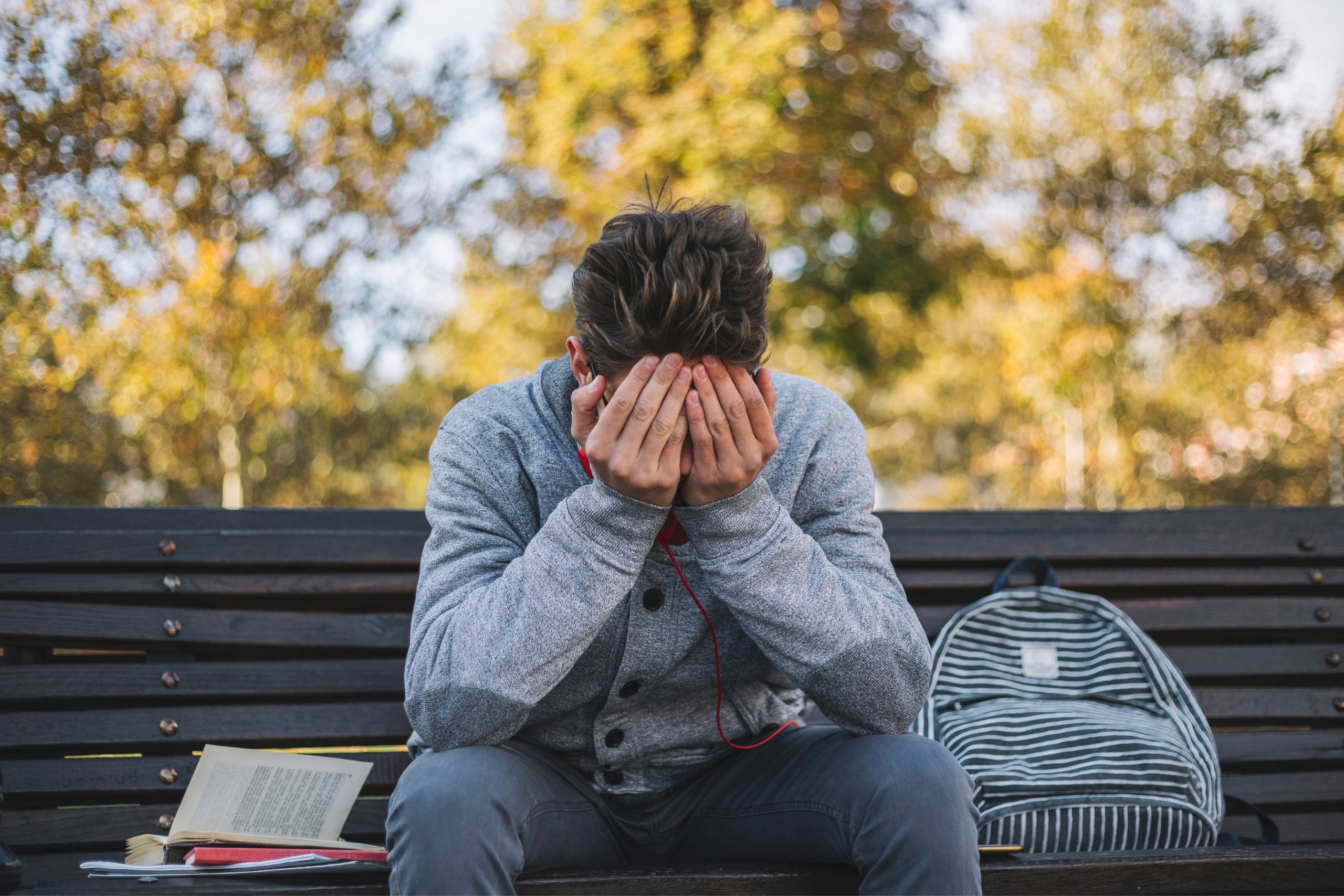We all feel angry every now and then. Maybe you didn’t do well on an exam or a friend said something rude behind your back. It’s also OK to want to be alone sometimes. Taking some time to yourself can be beneficial after a long day at school or a packed weekend. But if you find yourself feeling irritable and upset for more than a few weeks, struggling with mood swings and not wanting to be around others, it could be a sign that you may need to seek support for major depressive disorder.
If you’re a teen who has been diagnosed with depression, or you suspect that you’ve been having symptoms, you may be seeing a therapist or trying to practice self-care to manage it. While it’s good that you’ve gained a better understanding of your depression, it’s also OK to admit if you need further support. How do you know when it’s time? That’s what we’re here to discuss.
In this blog post, we’ll share some signs that you may need more help with your depression symptoms, such as being irritable and wanting to be alone.
7 signs that you may need further treatment for your depression
It’s not always easy to admit when you need help. Even so, your mental health should always be a priority. And sometimes, you need additional support from healthcare professionals to move you along your mental health journey.
If you’re unsure about whether it’s time for you to seek further support for your depression, here are seven signs to be aware of:
- You feel a strain in your relationships — Depression can make it difficult to form or maintain healthy relationships. This is often due to pessimism, fatigue or anhedonia (i.e., struggling to feel joy). You could also be irritated without cause, and it’s affecting your communication with your family and friends. If you feel like your relationships with loved ones are becoming strained or problematic — possibly even broken — then it’s important to address the symptoms causing the issues.
- You’re struggling to find joy in activities — As mentioned in the previous point, anhedonia is a common symptom of depression. It can make you want to be alone and avoid being social with other people. But having fun with your peers can be a pillar of a fulfilling lifestyle. It can also be seen as a type of self-care. If you no longer find joy in activities that you once did, such as hobbies or playing sports, it’s possible that your depression is worsening and that you should seek further help.
- Your academic performance is declining — School likely takes up a large majority of both your time and thoughts. If a lack of motivation and concentration issues have caused your grades to continuously decline, and you’re struggling to put in the effort to fix them, then it’s time to seek further support for your depression. Without it being addressed, you could struggle to pass your classes or get into your desired college.
- Other people have brought it up to you — It’s not always easy to have the self-awareness to recognize when your depression is worsening. Maybe other people in your life have taken notice of your overwhelming sadness or agitation. If a loved one has brought up concerns about your behavior, it’s important to remember that they are speaking up because they want what’s best for you, which may include treatment.
- You’re having sleep issues — Having a good night’s sleep is essential to your everyday functioning as well as your mental health, and having an irregular sleep schedule can worsen your depression symptoms, such as irritability. Insomnia and oversleeping are both common symptoms of the mood disorder. If you’re consistently struggling to fall asleep or you’re sleeping more than 10 hours a night, then it’s time to find effective treatment.
- You’re not practicing hygiene — Proper hygiene is essential for every age, and it’s even more important during times of puberty when your body is changing. While tasks like brushing your teeth, showering and putting on deodorant are often habitual, depression may get in the way of that due to lack of energy and motivation. If you’re forgetting to practice proper hygiene on a regular basis, further depression treatment may be needed.
- You’ve had a significant weight change — While it’s expected for your body to change throughout your adolescent years, it’s important to take note of any significant changes in your weight. Depression can often lead to overeating or lack of hunger. Either one can contribute to poor nourishment, causing irritability and fatigue. Whether you’ve noticeably lost or gained weight in a short period of time, it’s important to address the underlying issues before they lead to health concerns.
Embrace U can help when you need further treatment for depression
If you’ve been living with depression for a bit, then it’s possible that you’ve already explored treatment options, such as regular therapy sessions and antidepressants. If you feel like your symptoms haven’t improved with therapy, or possibly even worsened, then you could benefit from more intensive treatment.
At Embrace U, both our intensive outpatient and partial hospitalization programs can be beneficial for teens showing signs of persistent or worsening depression symptoms, such as sleep issues and low grades. We’ll work with you and your family to determine which option is the safest and most effective for your mental health journey.
Contact our team today for more information or to schedule an initial appointment.




